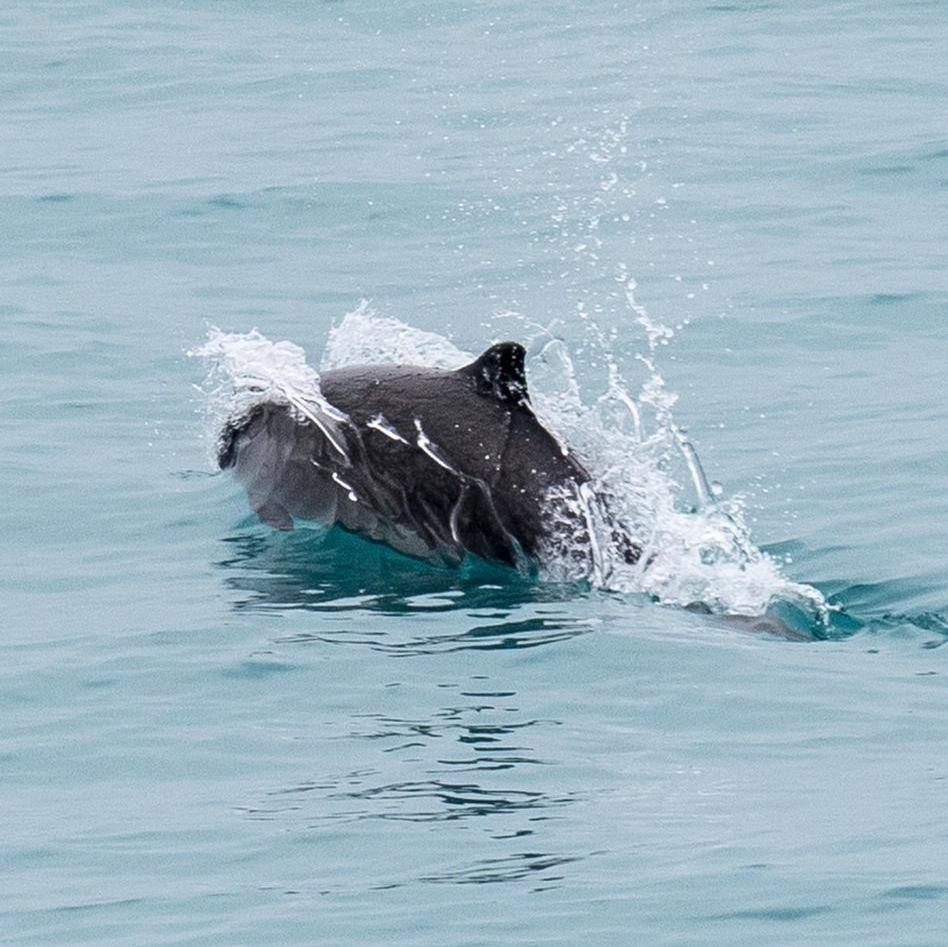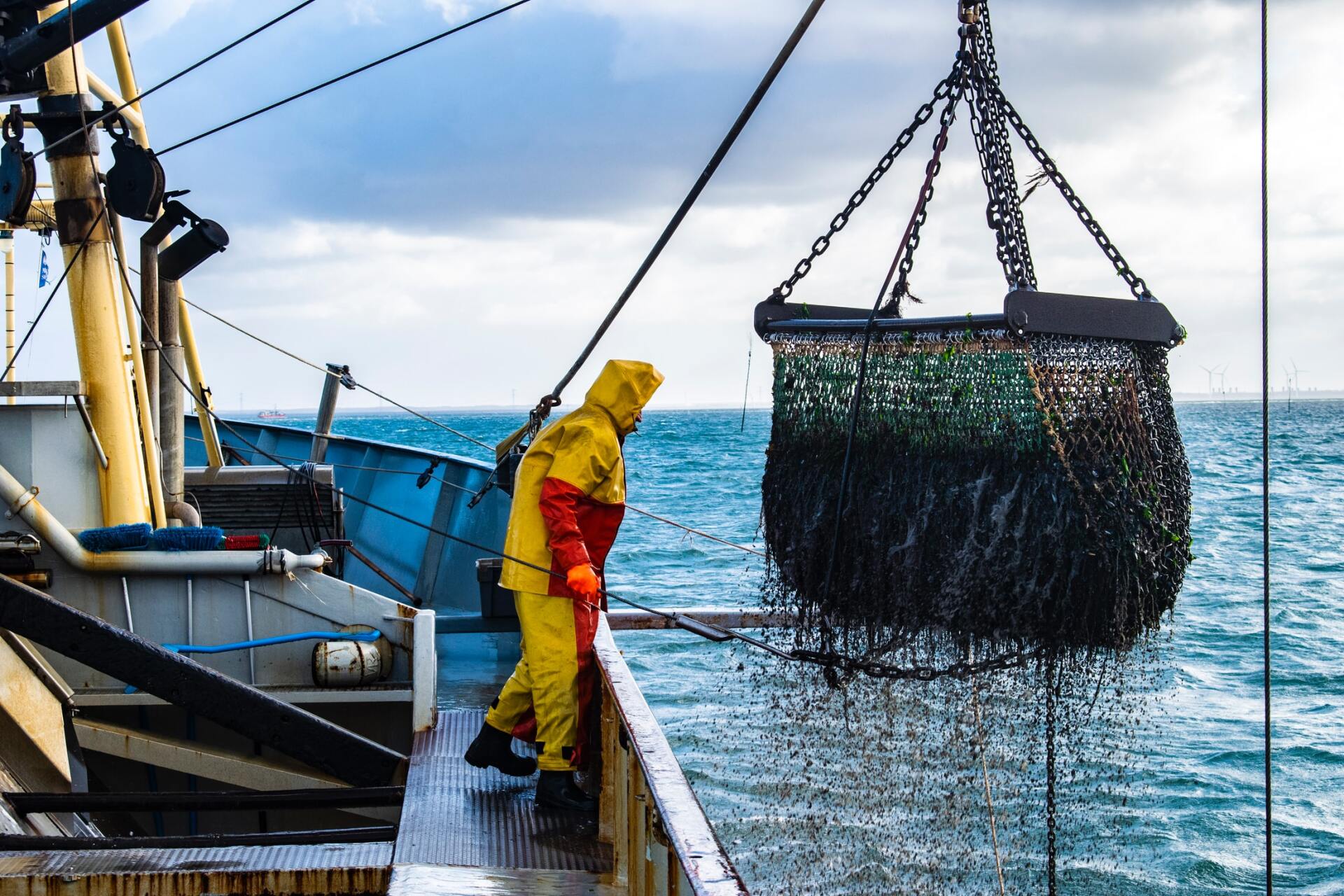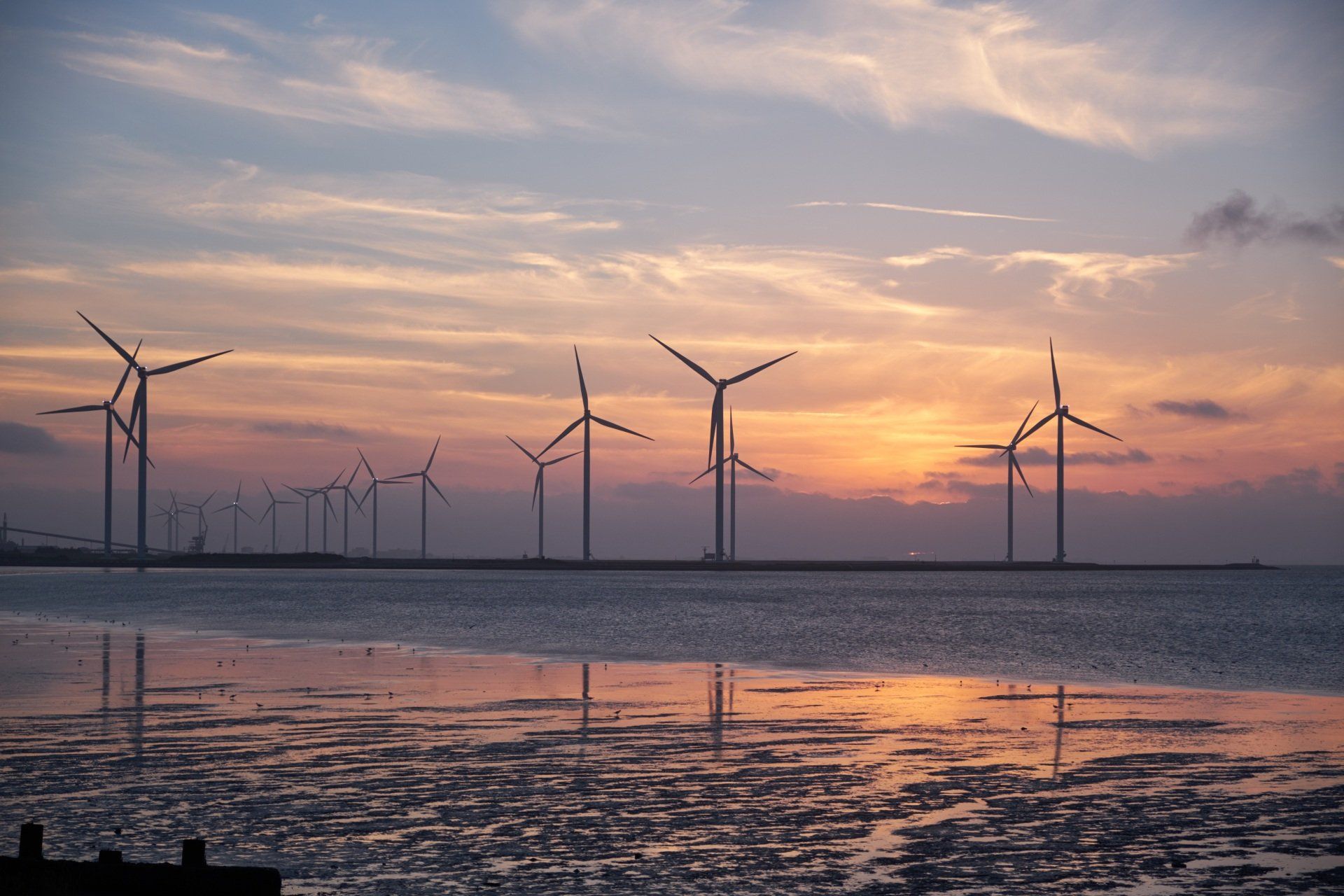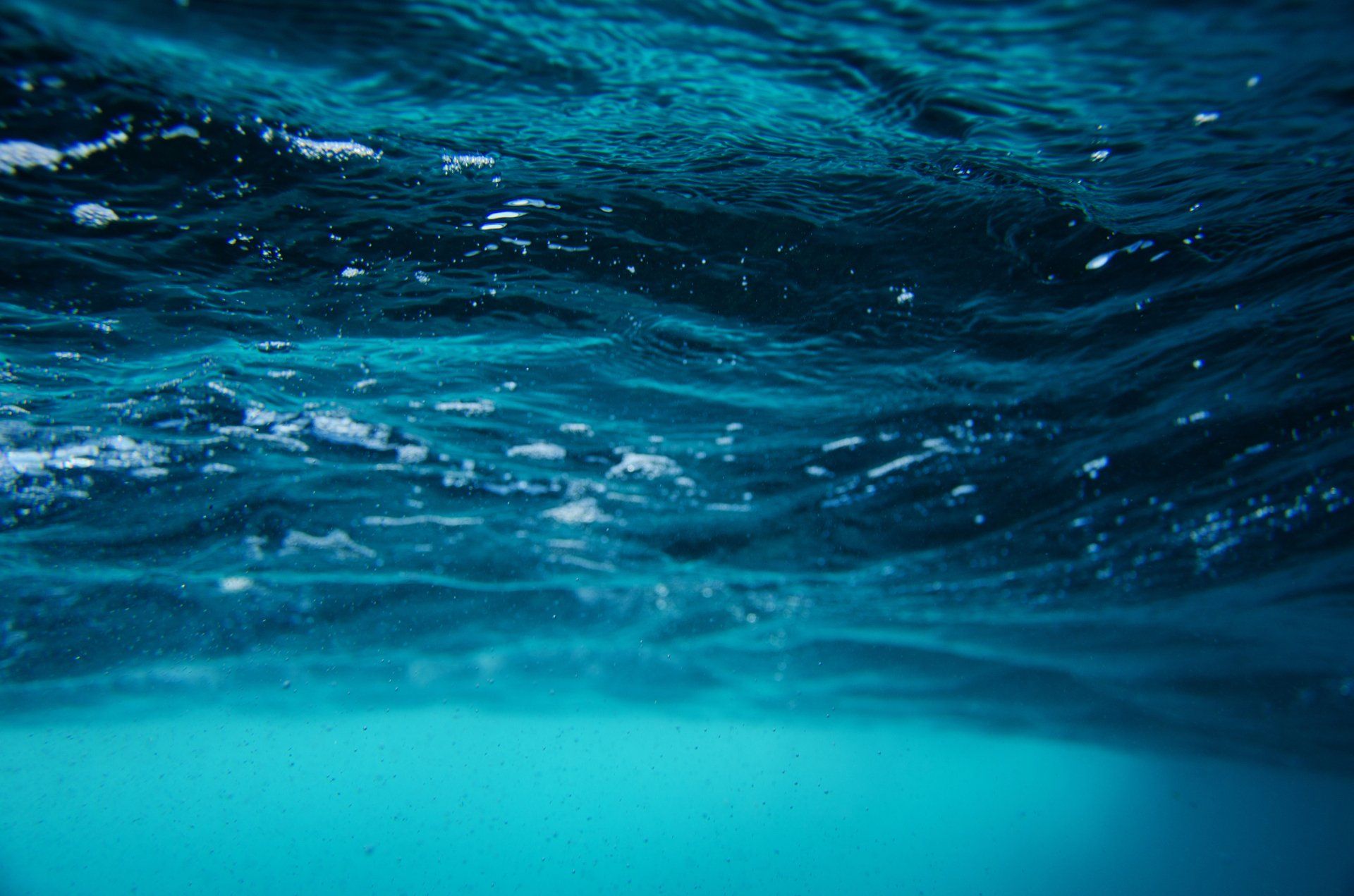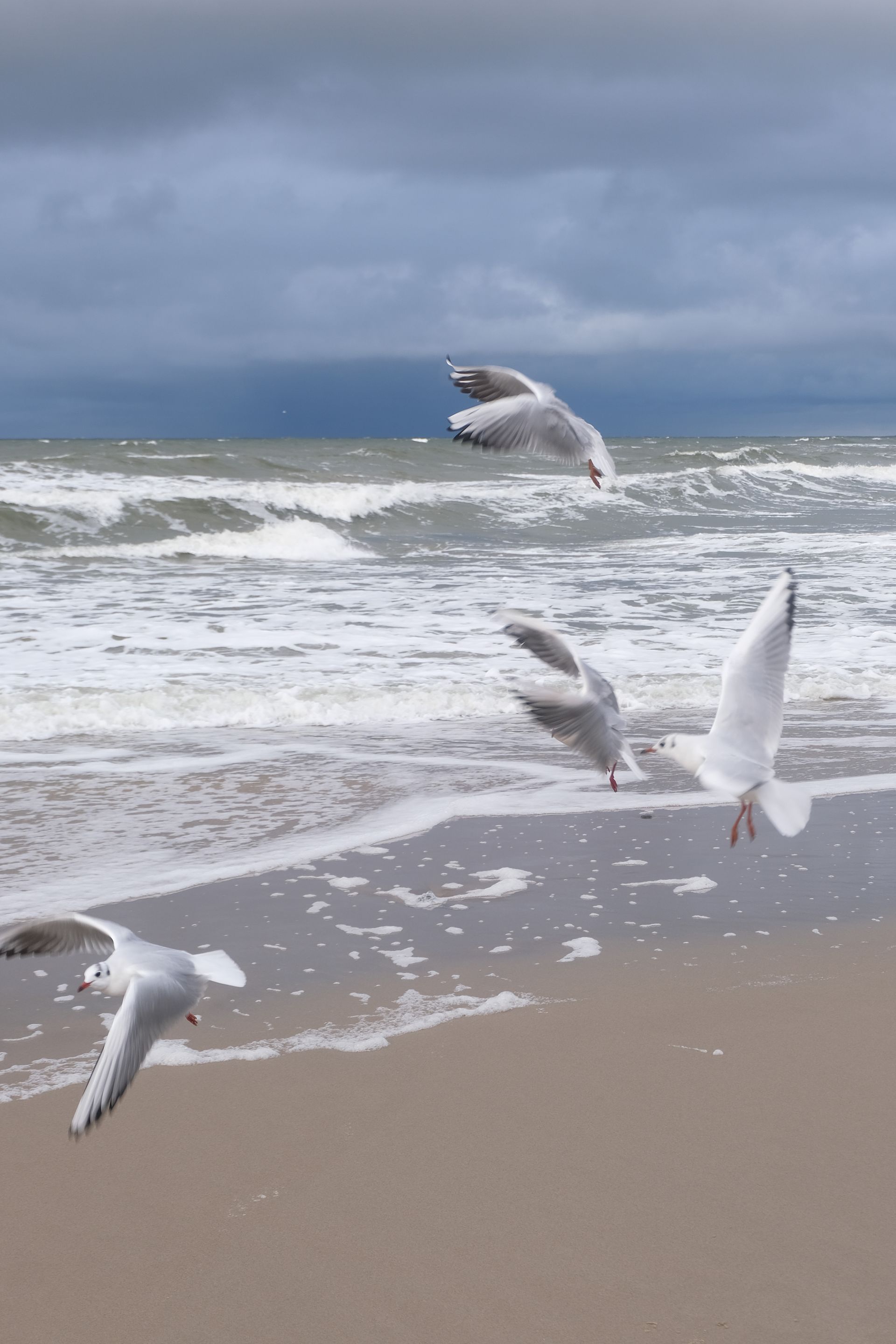
During the first half of 2022, CCB organized and held a coordination process going among EU NGOs. Several meetings were setup with DG Environment marine team on the MSFD review and evaluation process and linked initiatives such as the Action Plan for fisheries and the new nature restoration law. Progress was made on getting EU wide NGOs agree on an approach to work through concrete proposals for updating the Directive.
However, after the summer, DG Environment announced that the process to review and potentially update the legal text of the MSFD was postponed towards 2025.

CCB has continued successfully implementing the goals of improving cooperation between fisheries and environmental managers and have managed to get support for such deepened cooperation also from fishing organization and the BSAC.
CCB Secretariat and its Members have also been able to engage in the development of agreed thresholds for MSFD Descriptors on underwater noise and bottom integrity and the former is now approved with CCBs full support. The work will continue in 2023.
Moreover, CCB has worked continuously to link HELCOMs BSAP/MSFD, to the EU Common Fisheries Policy (CFP) and species protection, such as for eel and porpoise and the underlying organizational challenges.
Protecting species & habitats
The EU Green Deal and Biodiversity Strategy contains several deliverables that CCB has engaged in supporting its development, with the primary objective to advocate for matching the shortcomings and gaps of existing policies. New areas need to be designated to reach the 30/10 % goals and the protection of existing designated MPAs needs to be improved. The definition of "strict protection" will be vital and CCB has been working for an ambitious and strong definition, as well has participated in the discussion especially at the HELCOM level on the definition of OECMs.
CCB presented a document on “Transboundary Marine Protected Areas in the Baltic Sea region” at the HELCOM Working Group on the State of the Environment and Nature Conservation asking to take note of the document and comment on its content.
Moreover, CCB took part in the side event "Delivering global commitments in the Baltic Sea Region" on 30 June 2022, which took place during the UN Ocean Conference in Lisbon, Portugal, and was focused on experiences of the BSR in nominating MPAs and the emerging plans regarding OECMs. CCB addressed the event with keynote statement, highlighting the concerns of NGO community that OECM should not replace MPAs.

In 2022, the advocacy work has taken place through all available channels, including ASCOBANS, HELCOM working groups, the International Whaling Commission and other European NGOs on many issues. Within the CCB network, several MOs are now active on harbour porpoise conservation, and this capacity building has continued to cover national processes and national advocacy in more countries.
In parallel with advocacy activities, CCB has continued to disseminate knowledge about the Baltic harbour porpoise to the public, through both general CCB as well as dedicated social media channels.
Moreover, the public petition #SaveTheBalticPorpoise was launched in April and delivered to Virginijus Sinkevičius, the EU Commissioner on the Environment, Oceans and Fisheries, in Helsinki, Finland, in November 2022. The petition collected over 120,000 signatures from the citizens of all the countries around the Baltic Sea and many others in Europe and globally.
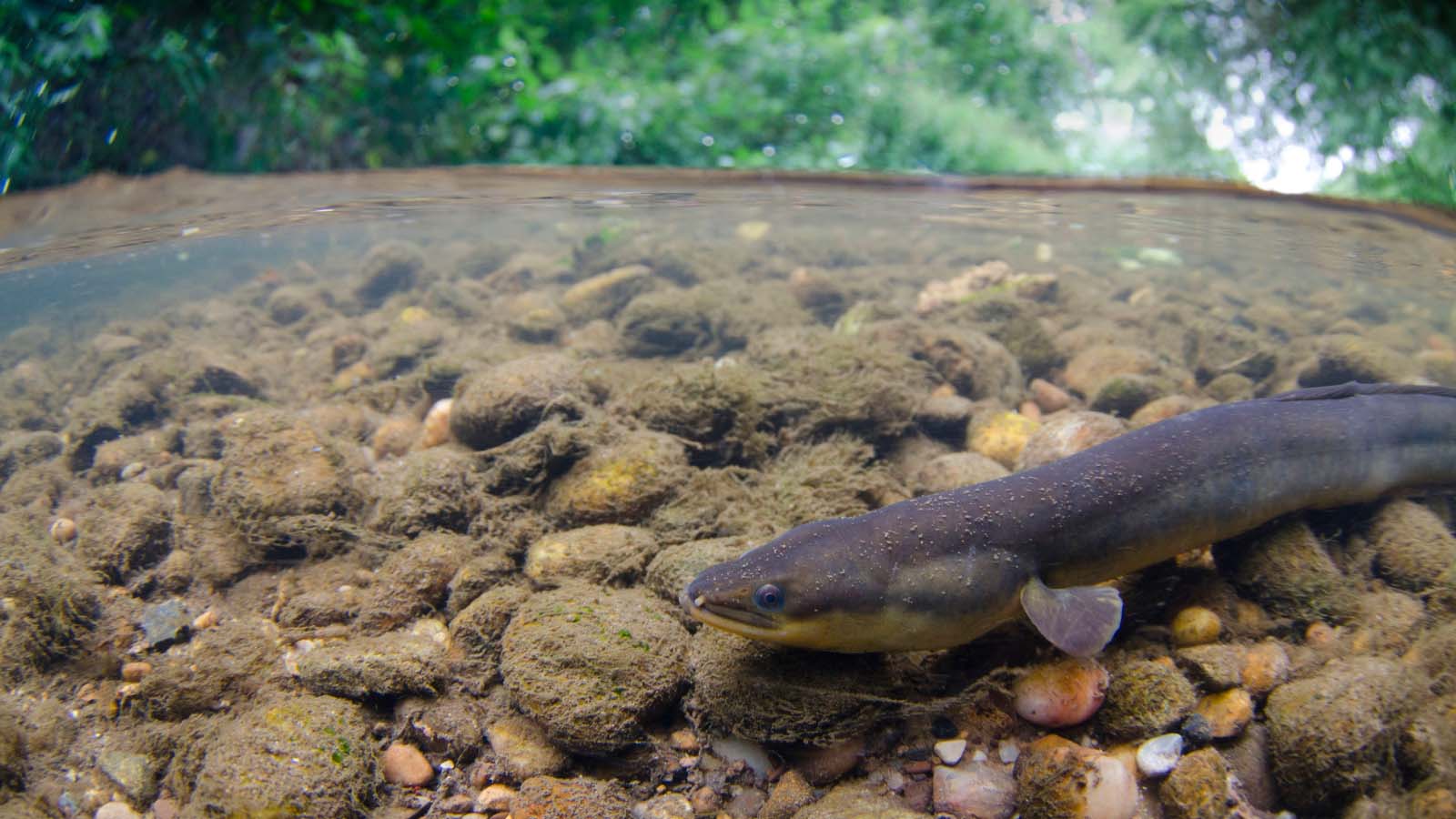
Eel and salmon focused activities for CCB has had two main lines and has taken place in accordance with our initial plans. Activities were driven by CCB Secretariat and in case of eel with strong involvement of CCB members in Sweden, Germany and Denmark.
CCB coordinated NGOs also outside CCB network to work on eel nationally and internationally, and, increase awareness and outreach regarding the eel status and aim to reduce the fishing on eel by primarily targeting Baltic Member States and the Commission.
CCB also met the Commissioner on the 7th of September in Brussels to hand over the results of a petition and to present our key options for a new Commission proposal to limit the eel fishery.
Regarding salmon, CCB has, according to plan, only started a process, formed a small group of experts and have engaged the senior salmon expert scientists and will seek to create a more comprehensive proposal for salmon management during 2023 and meetings etc. are already planned.
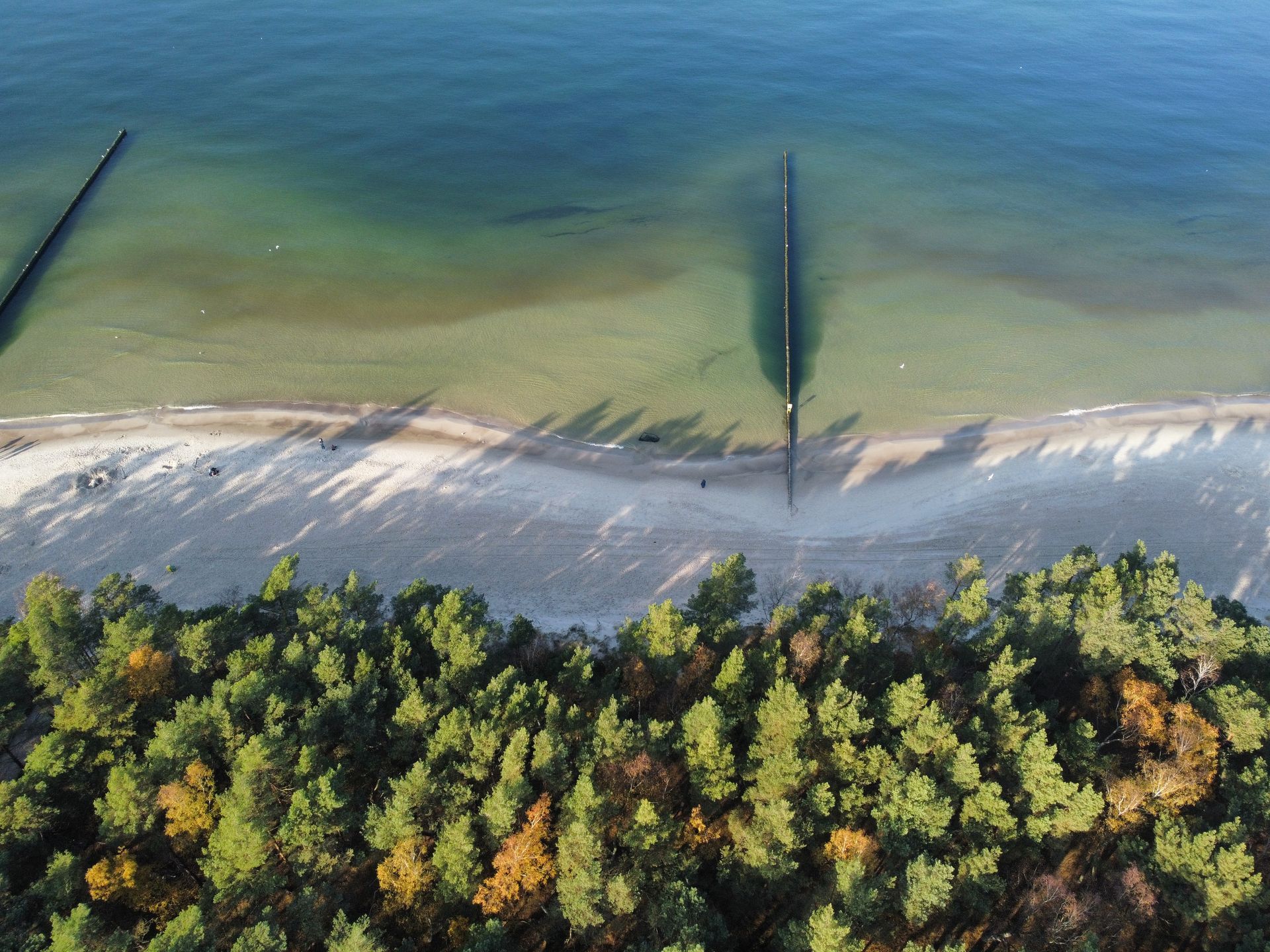
The EU Green Deal and Biodiversity Strategy contains several deliverables that CCB has engaged in supporting its development, with the primary objective to advocate for matching the shortcomings and gaps of existing policies. New areas need to be designated to reach the 30/10 % goals and the protection of existing designated MPAs needs to be improved. The definition of "strict protection" will be vital and CCB has been working for an ambitious and strong definition, as well has participated in the discussion especially at the HELCOM level on the definition of OECMs.
CCB presented a document on “Transboundary Marine Protected Areas in the Baltic Sea region” at the HELCOM Working Group on the State of the Environment and Nature Conservation asking to take note of the document and comment on its content.
Moreover, CCB took part in the side event "Delivering global commitments in the Baltic Sea Region" on 30 June 2022, which took place during the UN Ocean Conference in Lisbon, Portugal, and was focused on experiences of the BSR in nominating MPAs and the emerging plans regarding OECMs. CCB addressed the event with a keynote statement, highlighting the concerns of NGO community that OECM should not replace MPAs.
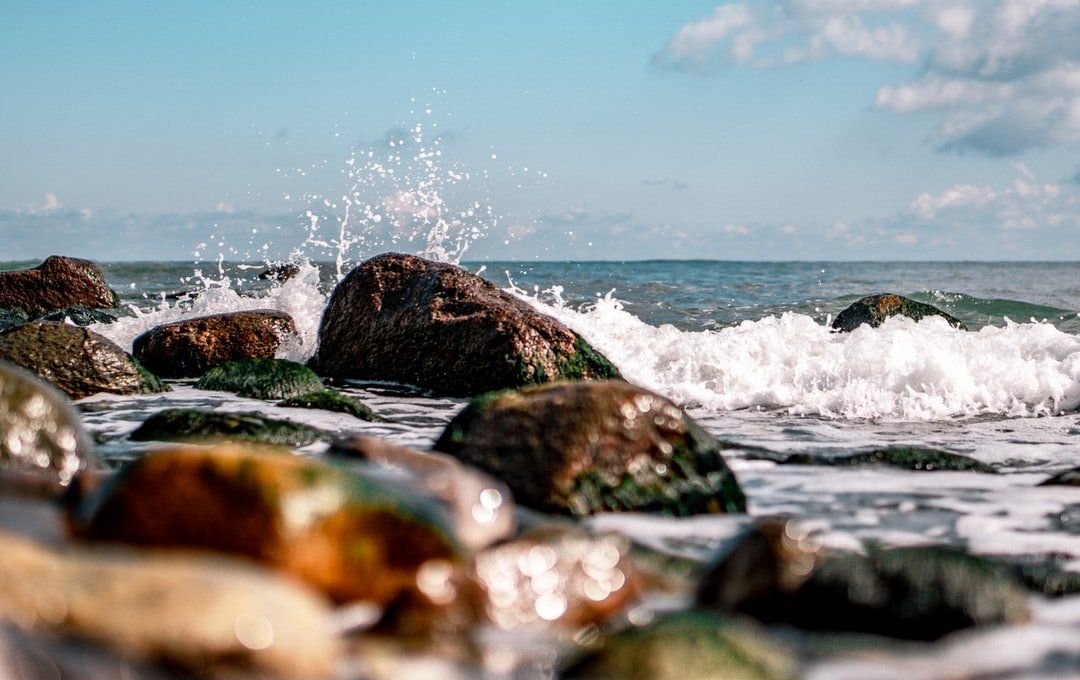
The work was led by the CCB Secretariat and the WA BIO leader and supported by MOs. CCB followed the development process for the Restoration law and worked (and still works) to ensure that the marine and river environment/ecosystems are sufficiently taken into account. This took place through participation in dedicated NGO meetings and joint cooperation of legal and restoration experts.
River restoration and renaturalisation are described under Eutrophication.
Minimizing pressures
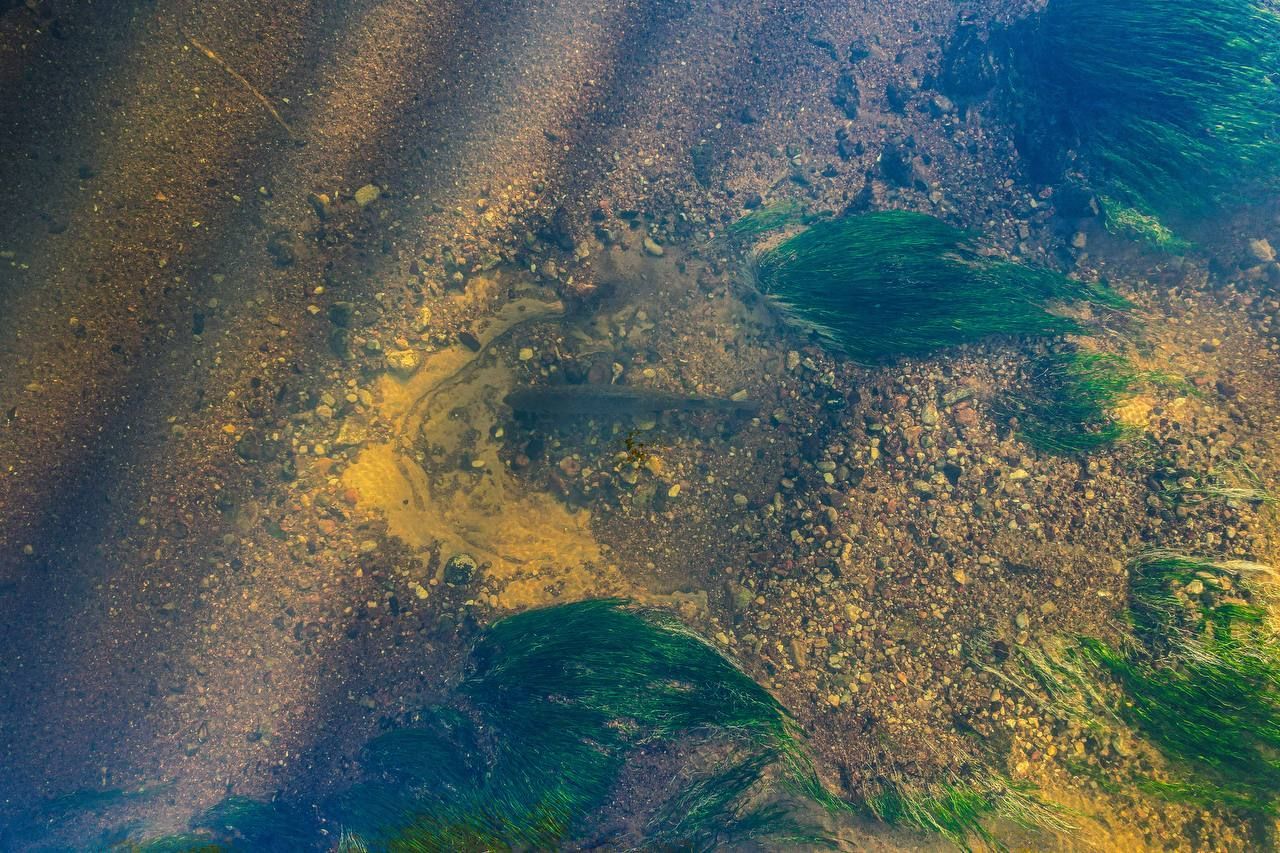
In 2022, together with other eNGOs, CCB had two main ambitions:
- to set the TACs for fisheries in accordance with ICES scientific advice;
- to fully support the EU NGO approach regarding not reforming the CFP.
Both aims were successfully met. The main deliverable and key document was the annual joint NGO paper recommending TAC for the Baltic Sea published in June. CCBs main responsibility in the process was salmon and cod as well as the ecosystem considerations expressed in the document. All PRs and joint documents can be found on the CCB website.
CCB has written and sent concrete input to the EC on how to improve the requests for scientific advice from ICES as part of a long process to shift towards ecosystem based management.
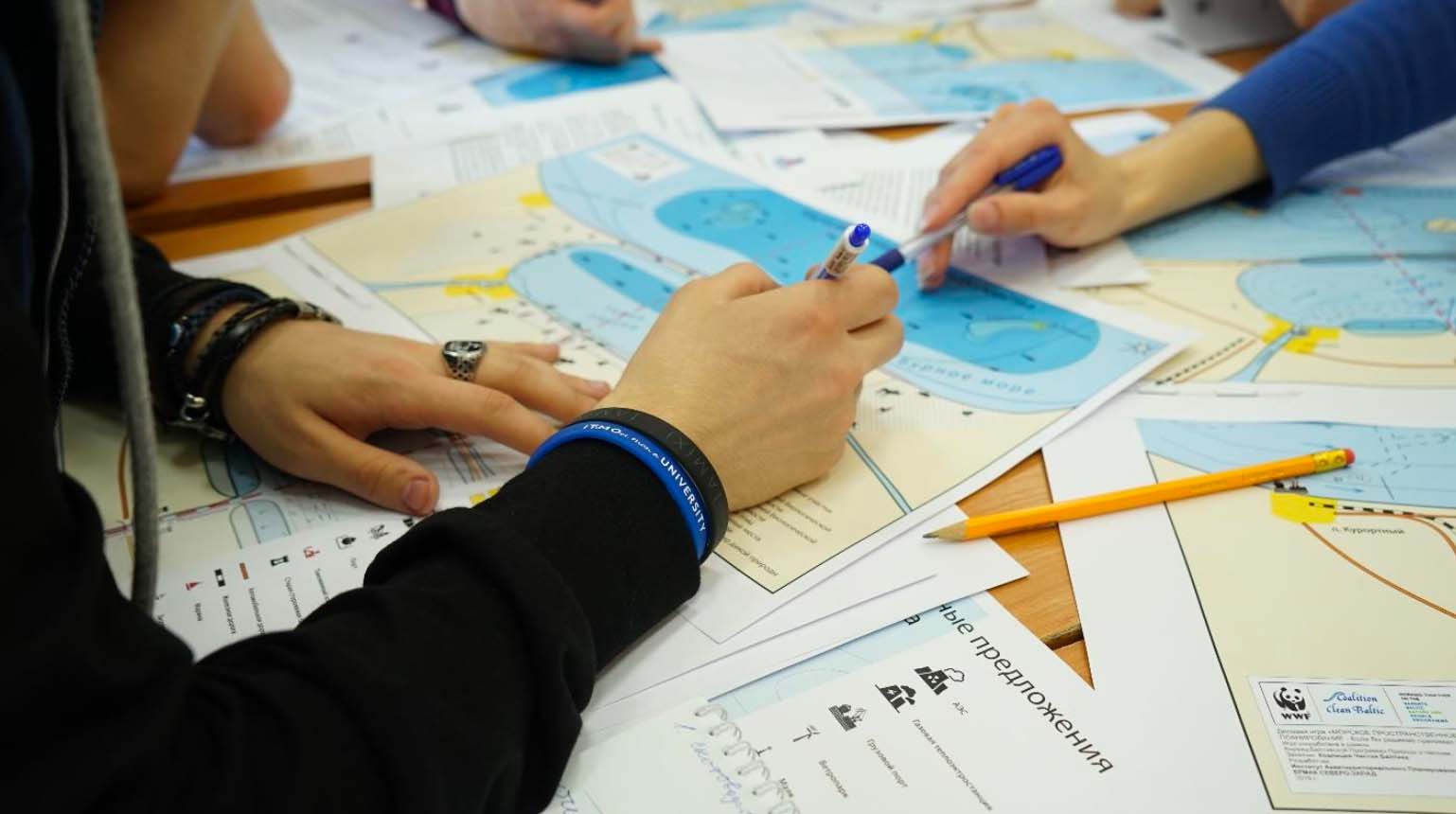
CCB is in favour of an expansion of offshore wind energy for the implementation of the energy transition, but this entails many risks for nature and places an additional burden on the marine environment through loss of habitat. We have worked on advocating that the expansion of offshore wind energy must be compatible with nature. This means that, when planning and building wind turbines, the objectives of the EU Birds and Habitats Directive and the MSFD must be taken into account.
During 2022, CCB has:
- Drafted and submitted to the European Commission a CCB position paper for the consultation of the introduction of the RePowerEU plan and the proposal of amendment of the Renewable Energy Directive, especially for offshore wind farms, focusing on a positive narrative and relating offshore wind farm expansion to strict protection.
- A joint document with WWF BEP on “Cumulative impacts of offshore wind park (OWP) projects in the Baltic Sea” was presented at the HELCOM Working Group on the State of the Environment and Nature Conservation to highlight the need of building knowledge regarding cumulative effects and MPA impacts as well as to enhance cooperation with the Espoo Convention to address transboundary cumulative impacts of planned OWP in the Baltic Sea and to align the development ambitions with the BSAP MPA goals and priorities.
- CCB has together with WWF BEP started the process of drafting a guideline document for Member States, industry actors and NGOs to identify ORE go-to areas in the Baltic Sea Region. The work will continue in 2023.
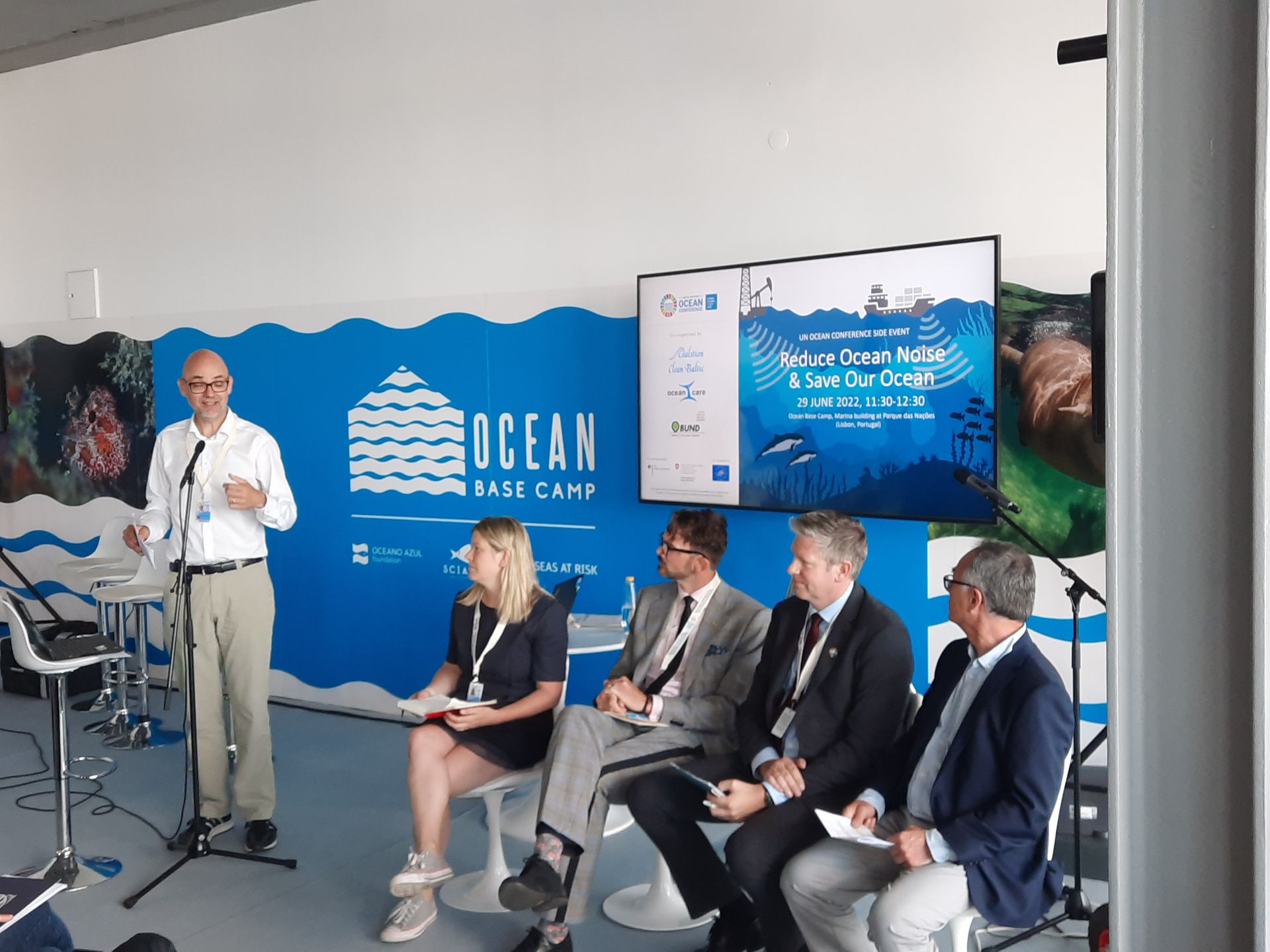
Even though underwater noise is recognised as a significant problem, concrete actions to reduce it are still scarce. CCB aims to enhance the knowledge about possible mitigation measures and to ultimately achieve a reduction of underwater noise in the Baltic. During 2022, CCB has carried out different activities and advocacy work:
- In cooperation with the Federal Maritime and Hydrographic Agency (BSH), Germany organised a 2-day online workshop on underwater noise from shipping. It attracted 65 participants, mainly from the Baltic Sea countries.
- Supervised the work of students from the Vlerick Business School who published a paper on ‘Business Implications in Underwater Noise Pollution in the Baltic Sea and Noise Reduction’.
- With OceanCare and the MO BUND Friends of the Earth Germany, and with the co-sponsorship of Germany and Switzerland, hosted the side event "Reduce Ocean Noise and Save Our Ocean" at the UN Oceans Conference in Lisbon on 29 June.
